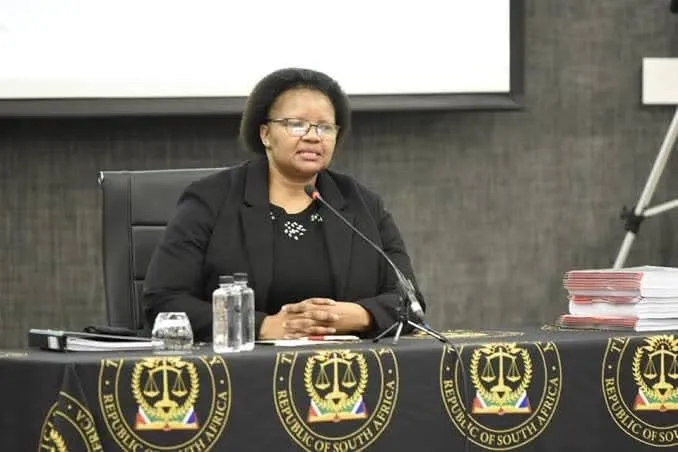Judge's arrest raises alarms over judiciary's integrity

Judge Portia Dipuo Phahlane, who is accused of corruption and money laundering in a high-profile church succession battle, was released on R50,000 bail.
Image: Judges Matter
The Law Society of South Africa (LSSA) has expressed deep concern following the arrest of a sitting judge from the Gauteng High Court, alongside several co-accused, on serious charges including corruption and money laundering. This dramatic turn of events comes amidst an ongoing succession dispute before the Pretoria High Court, and poses severe implications for the administration of justice in the country.
LSSA president Nkosana Francois Mvundlela said the allegations, if proven true, strike at the very foundations of the rule of law and judicial independence, highlighting the urgent need for transparency in South Africa's legal system. The LSSA stated that the suggestion a judicial officer may have accepted financial inducements to influence a judgement constitutes a significant assault on the principles that underpin the nation’s constitutional democracy.
While the LSSA firmly reiterates the principle that every accused person is entitled to a presumption of innocence and a fair trial, they also spotlight the critical importance of judicial integrity. “It is imperative that these allegations be subjected to a swift, rigorous, and transparent investigation to ensure accountability and to preserve public trust in the justice system,” said Mvundlela.
The Chief Justice, Justice Mandisa Maya, has reportedly taken decisive action by placing Judge Portia Phahlane on special leave pending the resolution of the criminal proceedings. The process surrounding her potential suspension is also underway, a move welcomed by the LSSA. The Office of the Chief Justice has assured the public that measures will be taken to prevent disruptions to cases formerly overseen by the judge in question.
The call from the Chief Justice for the timely reporting of any evidence of misconduct or criminal behaviour amongst judges has resonated with the LSSA. “The fight against corruption within the justice system must be firm and uncompromising,” the Chief Justice stated, reinforcing the notion that no one is above the law, regardless of their position.
This incident comes at a critical time when public sentiment towards the judiciary has already been showing signs of strain. Recent surveys indicate a decline in public confidence, which amplifies the urgency of ensuring that justice remains transparent and accountable. The LSSA echoed concerns expressed by the Portfolio Committee on Justice and Constitutional Development, whose Chairperson warned of the potential detrimental effects corruption could have on South Africa’s constitutional order.
Mvundlela urged people to refrain from generalising the actions of one judge to the entire judicial system, emphasising that the vast majority of judicial officers serve with unwavering integrity and commitment to the Constitution. He called upon the public, litigants, and the legal community to allow legal processes to unfold without distortion or unsubstantiated speculation.
“Upholding the rule of law requires both accountability and adherence to due process,” he remarked, reaffirming the LSSA's commitment to defending the integrity of the legal profession and the judicial system. The organisation promises to continue monitoring the unfolding situation closely and to engage relevant stakeholders to preserve the credibility of South Africa’s courts in the face of adversity.
IOS
Related Topics: